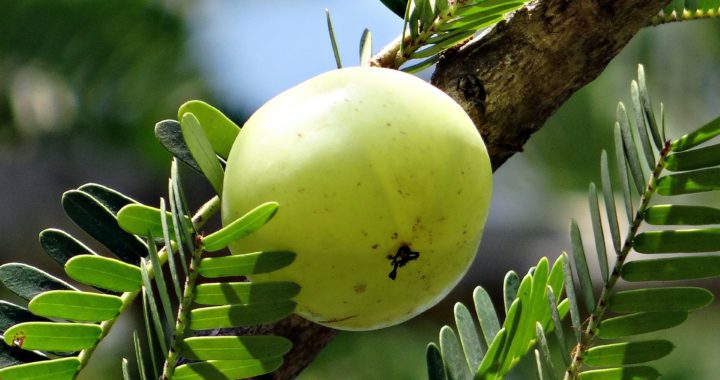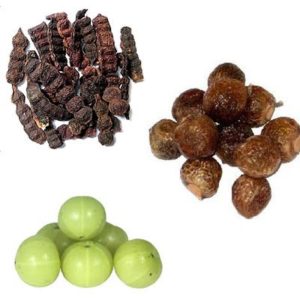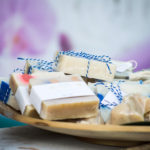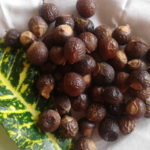If you are wondering why we are talking about natural alternatives to chemical based shampoos, please read my earlier post on What’s lurking inside our shampoo?
As I became aware of the dangers present in modern-day personal care products, I started looking for natural alternatives. Fortunately, natural solutions for body care have been around for millennia.
Until the first half of the 20th century, only natural solutions were used for personal grooming and cosmetics. A good place to start looking for these options, would be to find out what alternatives were used by our grandparents. Till only a few generations ago, a whole range of natural products were produced from the kitchen itself.
Incidentally, the English word ‘shampoo’ comes from the Hindi word ‘champi”, which means “to knead”.
According to Ayurvedic principles, you should apply to your skin only those substances that are edible. The reason is that anything applied to the skin, is directly absorbed into the bloodstream. On the other hand, an item that is ingested through the mouth is first broken down in the stomach, and its harmful ingredients removed by the liver. Thus, toxic substances applied directly to the skin are more harmful for the body.
For Hair Care, Reetha/Ritha(Soapnut), Shikakai (Acacia Concinna) and Amla (Indian Gooseberry), have been used for centuries in India.
While Reetha is a hair cleanser, Shikakai works as a conditioner. The combination of Reetha, Shikakai and Amla nourishes the scalp, helps in hair growth, and gives them a soft feel.
Reetha contains saponins, which act as a natural surfactant. It has antimicrobial properties, which help to keep hair shiny & skin soft. Shikakai, which literally means ‘fruit for hair’, has abundant amounts of Vitamin C, and other micronutrients, which help to nourish hair roots.
Reetha, Shikakai and Amla are commonly available in Kirana stores in India. You can utilize their properties for hair care, in the following ways:
1. The traditional method, is to soak Reetha berries, Shikakai pods and Amla fruits together overnight, and then boil and strain the concoction the next morning to prepare a ‘shampoo’. While applying on the scalp, don’t let the ‘shampoo’ enter your eyes, as it will sting.
2. Alternately, you can mix Amla, Reetha and Shikakai Powder Combo together with water to make a paste, which can then be applied to the scalp and washed off after a while. If Amla is not available, Reetha or Shikakai can be used individually, or in combination.
3. Meghdoot Gramodyog sells a shampoo called Satritha Shampoo, which contains extracts of these traditional herbs. Satritha shampoo is a thick solution, with Reetha extract as the main ingredient. However, please note these Shampoos may contain Sodium Lauryl/LaurethSulphate as a foaming agent. Also, these shampoos come in plastic bottles, which does add to our non-biodegradable load.
4. There is another simple solution for haircare, which avoids chemical based shampoos. It is known as “soap”. Before the 20th century, soaps served the function of shampoos as well. Soaps are made from vegetable oils, mixed with an alkali. However, every type of soap will not work for hair, and it may need some trial & error to figure out the right variety of soap for one’s hair.
You will notice that your natural ‘shampoo’ will produce much less foaming than you are used to. We often correlate a shampoo’s cleaning properties with the amount of foam it produces. In fact, the extra foam in shampoos is created by using mono-ethanolamine (MEA), diethanolamine( DEA) or triethanolamine (TEA), which are known hormone-disruptors and have already been banned in a number of European countries.
It is important to remember that many of the so called ‘herbal shampoos’ may also contain harmful ingredients. Therefore, it is important to check the label for the entire list of ingredients. Many shampoos which are advertized as being ‘herbal’ may contain detergents as the base, which are often hidden in the ingredients list under the catch-all term “Q.S.” (Quantum Sufficit).
By switching to natural products, you can protect your health, while also doing your bit to protect the environment. The runoff from chemical shampoos, shower gels etc enters the water supply chain and the soil & pollutes our ecosystem. By rejecting chemical based shampoos, we can also reduce our impact on the environment.







Great Info!
Wow! Thank you! I constantly needed to write on my website something like that. Can I take a part of your post to my blog?